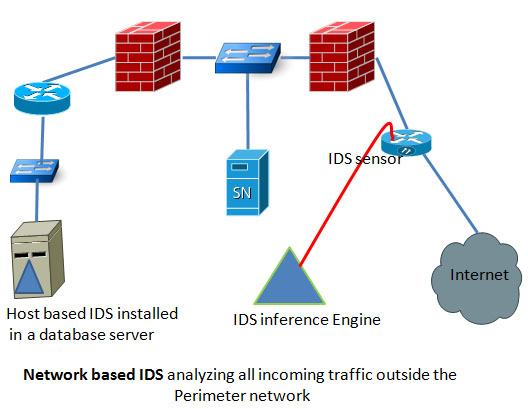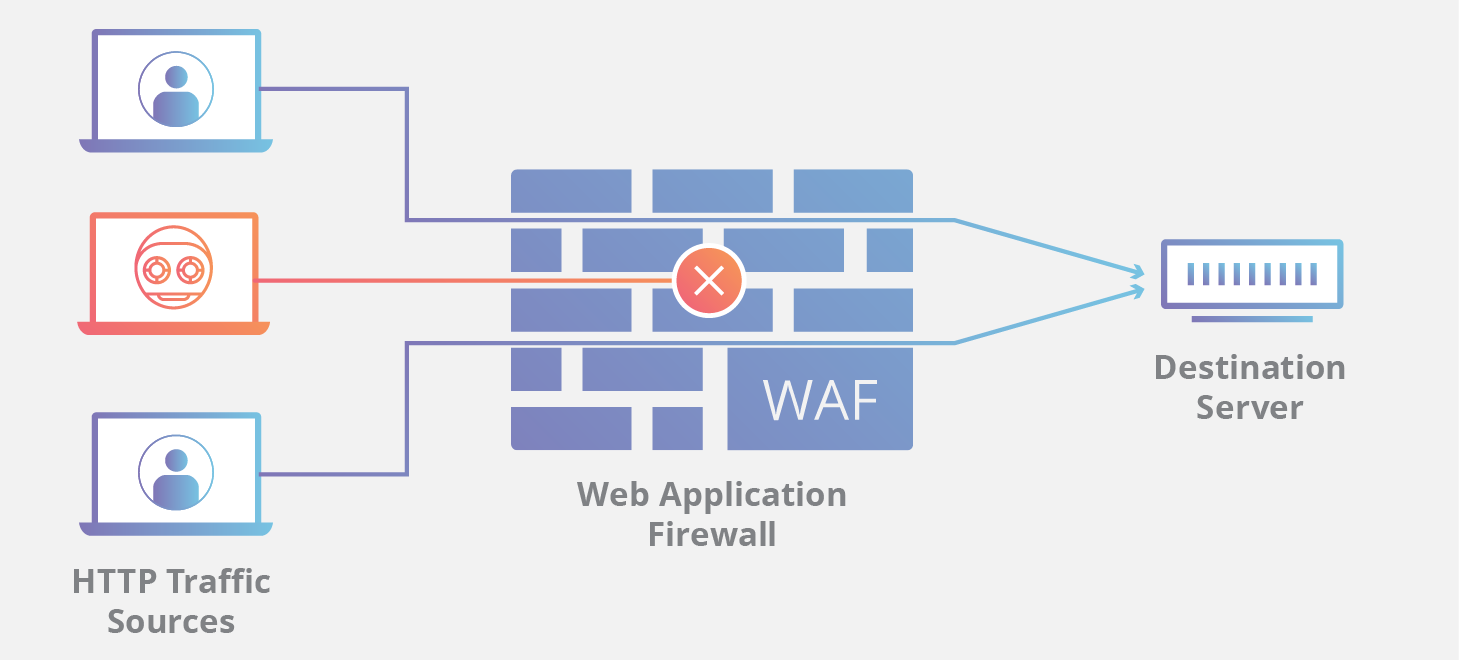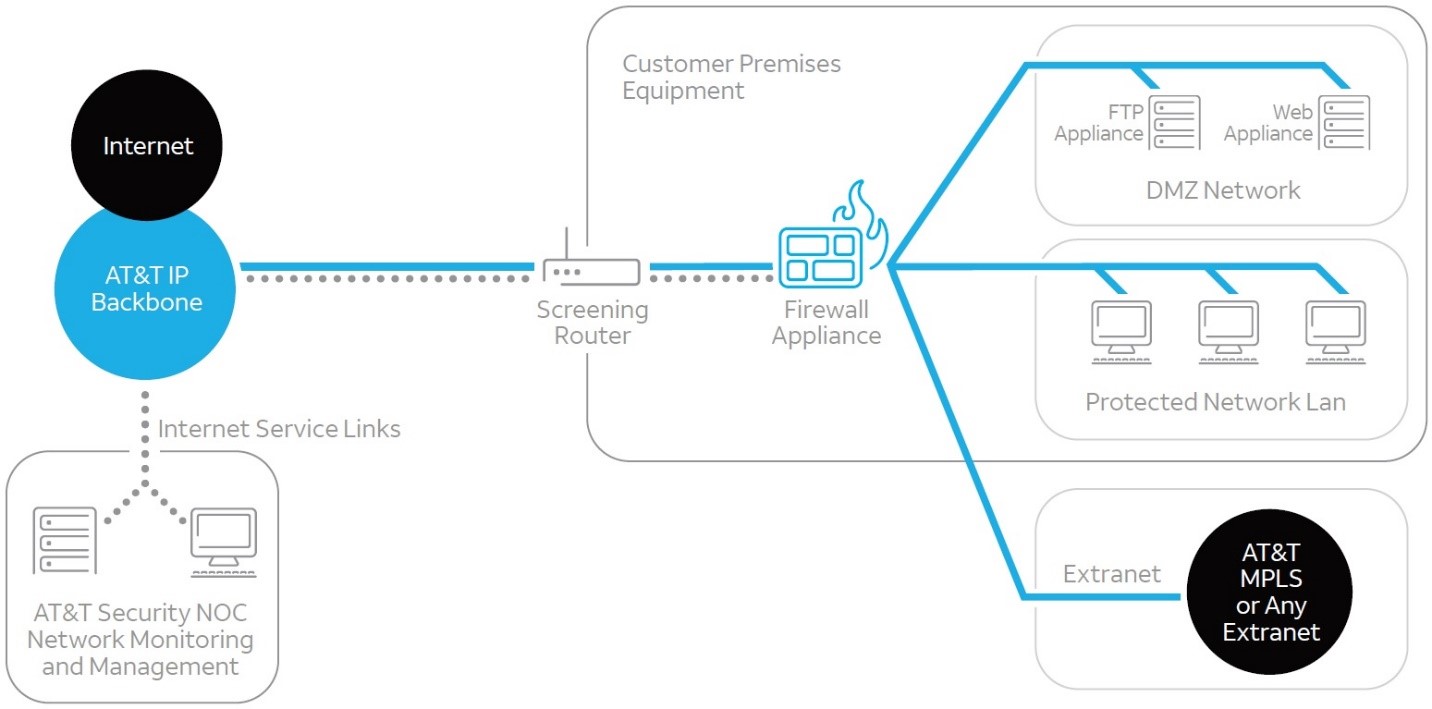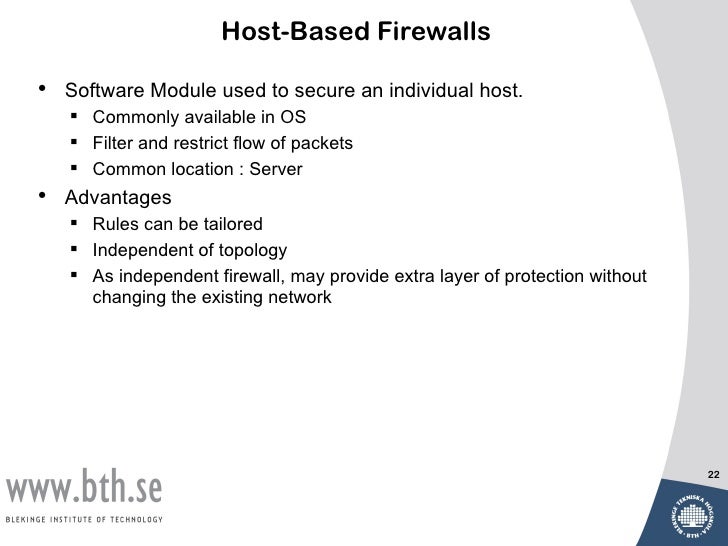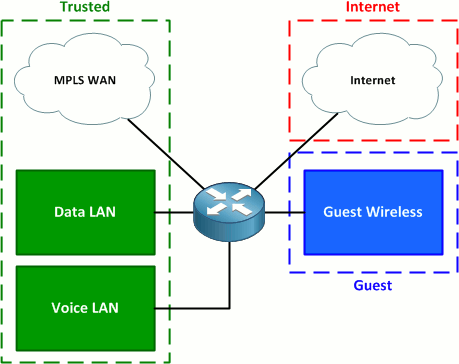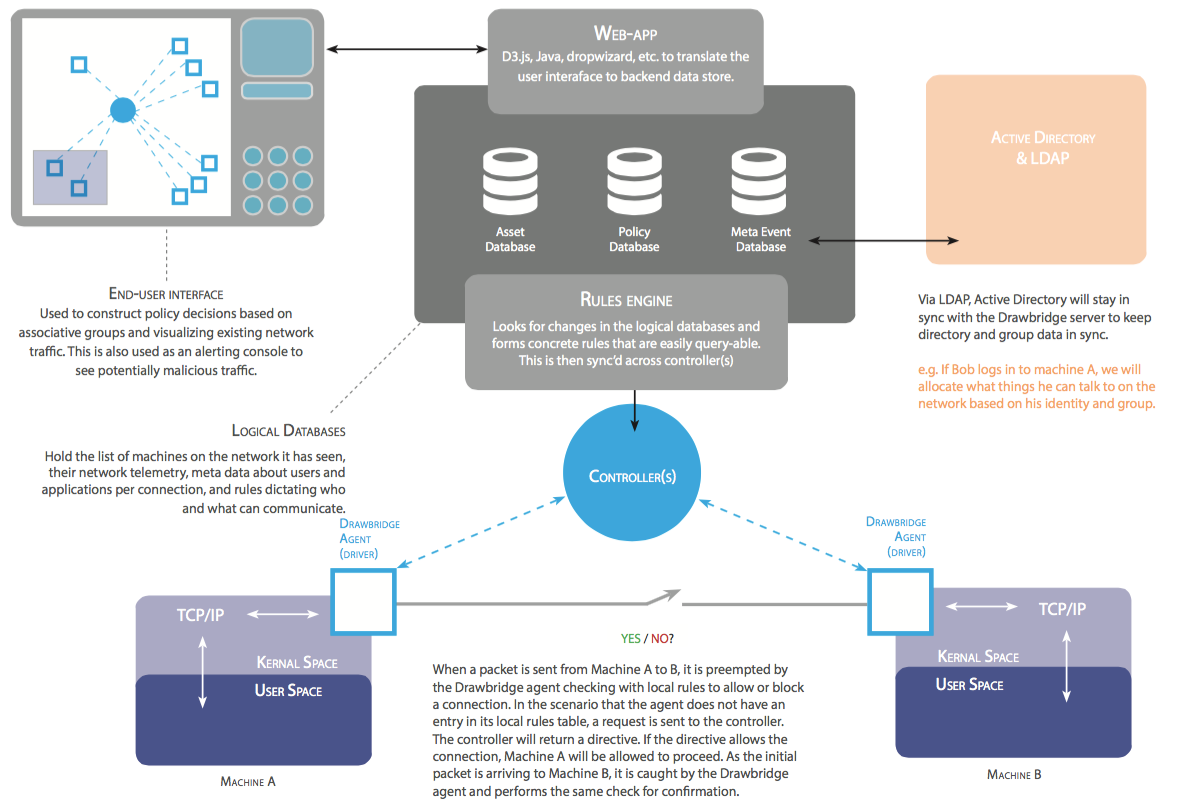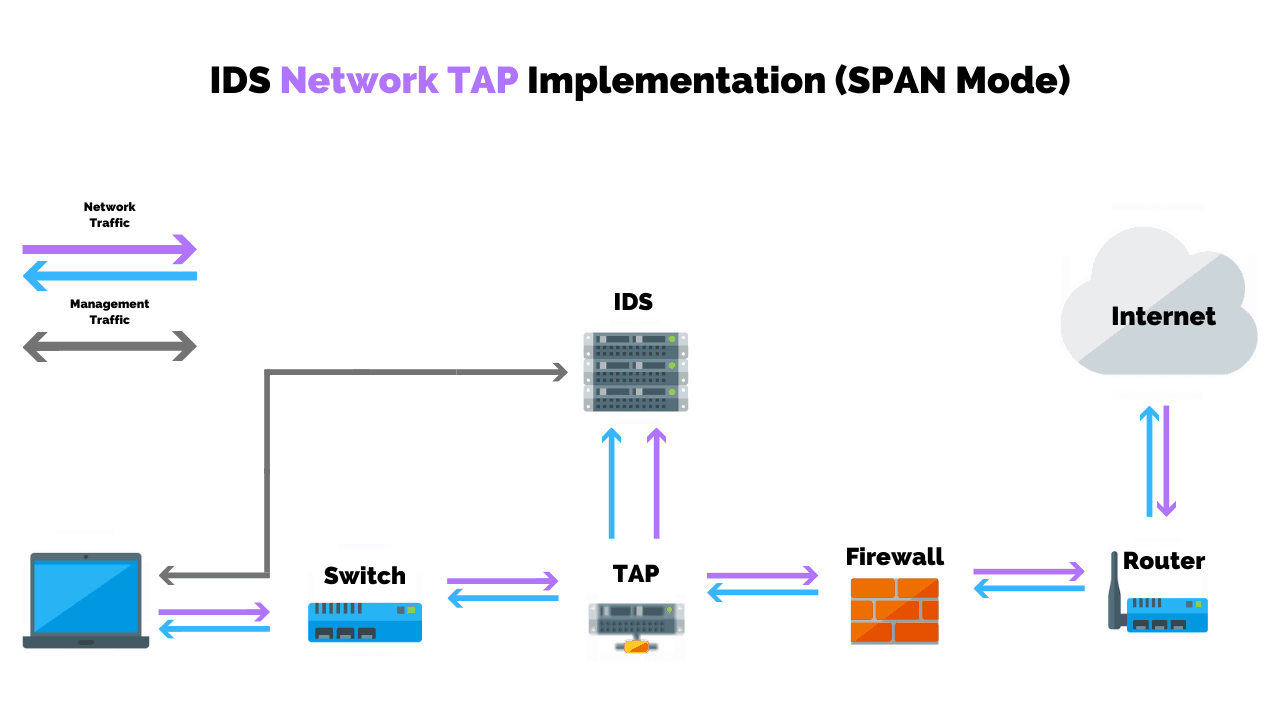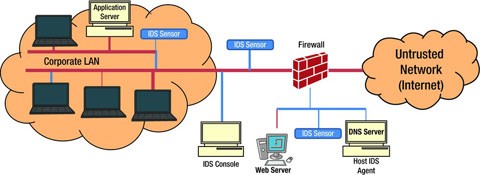Network Based Firewall Definition

A host based firewall is a piece of firewall software that runs on an individual computer or device connected to a network.
Network based firewall definition. Firewalls have been a first line of defense in network security for over 25 years. The network based firewall is usually a dedicated system with additional software installed to monitor filter and log traffic. A network firewall protects a computer network from unauthorized access. Firewalls can be implemented as both hardware and software or a combination of both.
It might take the form of a hardware device a software program or a combination of the two. A firewall is a network security system that monitors and controls over all your incoming and outgoing network traffic based on advanced and a defined set of security rules. Network firewalls guard an internal computer network against malicious access from the outside such as malware infested websites or vulnerable open network ports. Network firewalls are frequently used to prevent unauthorized internet users from accessing private networks connected to the internet especially intranets.
This can be a daemon or service as a part of the operating system or an agent application for protection. These types of firewalls are a granular way to protect the individual hosts from viruses and malware and to control the spread of these harmful infections throughout the network. A firewall is a network security system designed to prevent unauthorized access to or from a private network. A firewall is a network security device that monitors incoming and outgoing network traffic and decides whether to allow or block specific traffic based on a defined set of security rules.
For example a popular network based firewall used in many larger environments is sidewinder.


